Children First serves 30 students in grades Prekindergarten.
The student:teacher ratio of 3:1 is lower than the Florida state level of 17:1.
Minority enrollment is 23% of the student body (majority Hispanic), which is lower than the Florida state average of 65% (majority Hispanic).
Quick Stats (2025)
- School Type: Special education school
- Grades: Prekindergarten
- Enrollment: 30 students
- Student:Teacher Ratio: 3:1
- Minority Enrollment: 23%
- Source: National Center for Education Statistics (NCES), FL Dept. of Education
Top Rankings
Children First ranks among the top 20% of public schools in Florida for:
Category
Attribute
Community Size
Student Attention
School Overview
Children First's student population of 30 students has declined by 16% over five school years.
The teacher population of 10 teachers has grown by 42% over five school years.
School Type
Grades Offered
Grades Prekindergarten
Total Students
30 students
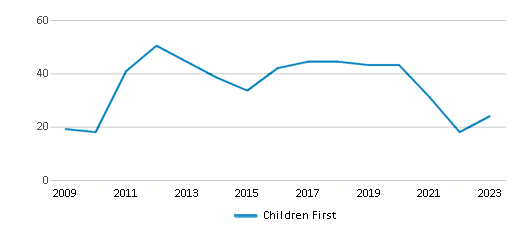
Gender %
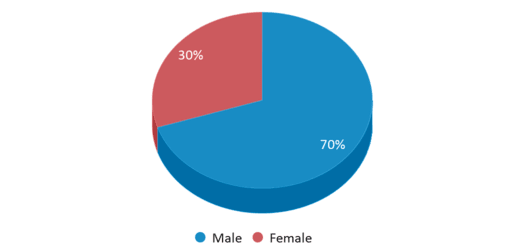
Total Classroom Teachers
10 teachers
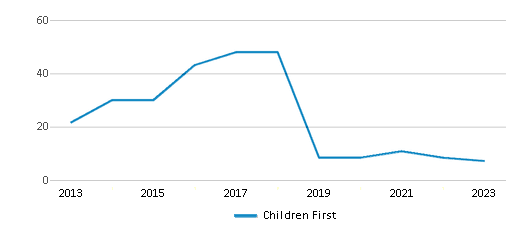
School Rankings
The diversity score of Children First is 0.39, which is less than the diversity score at state average of 0.70. The school's diversity has stayed relatively flat over five school years.
Student : Teacher Ratio
3:1
17:1
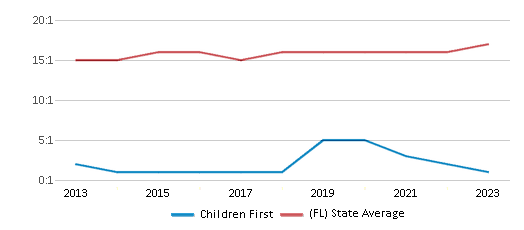
American Indian
n/a
n/a
Asian
n/a
3%
Hispanic
10%
37%
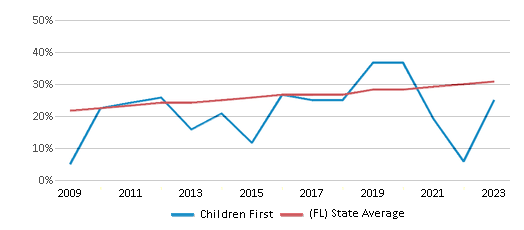
Black
7%
21%
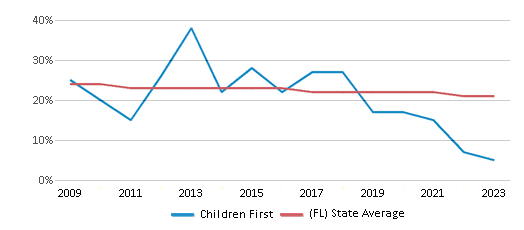
White
77%
35%
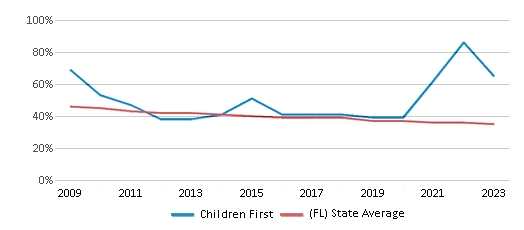
Hawaiian
n/a
n/a
Two or more races
6%
4%
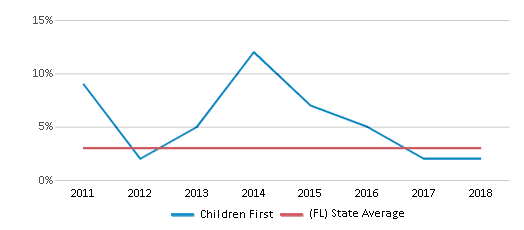
All Ethnic Groups
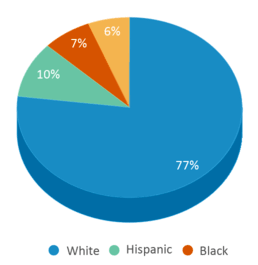
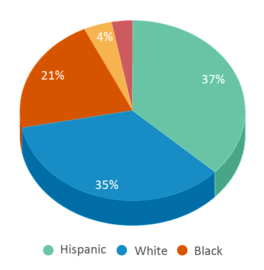
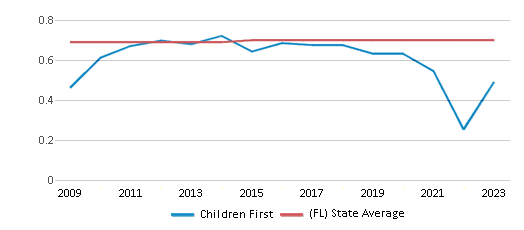
Eligible for Free Lunch
10%
47%
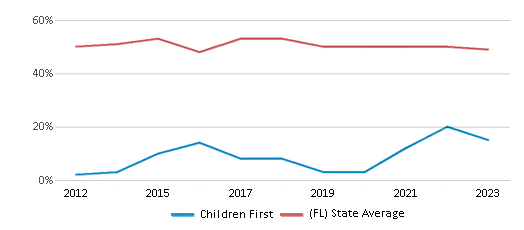
Eligible for Reduced Lunch (19-20)
6%
6%
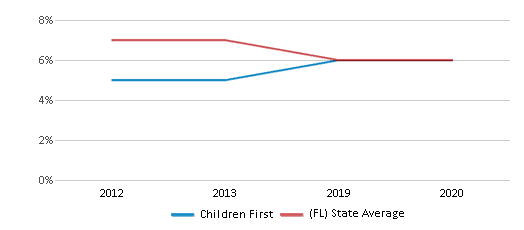
School Statewide Testing
School District Name
Source: National Center for Education Statistics (NCES), FL Dept. of Education
Profile last updated: 02/09/2025
Frequently Asked Questions
What schools are Children First often compared to?
Children Firstis often viewed alongside schools like Community Haven For Adults And Children With Disabilities, Access To Education by visitors of our site.
How many students attend Children First?
30 students attend Children First.
What is the racial composition of the student body?
77% of Children First students are White, 10% of students are Hispanic, 7% of students are Black, and 6% of students are Two or more races.
What is the student:teacher ratio of Children First?
Children First has a student ration of 3:1, which is lower than the Florida state average of 17:1.
What grades does Children First offer ?
Children First offers enrollment in grades Prekindergarten
What school district is Children First part of?
Children First is part of Sarasota School District.
In what neighborhood is Children First located?
Children First is located in the 17th Street neighborhood of Sarasota, FL.
School Reviews
Review Children First. Reviews should be a few sentences in length. Please include any comments on:
- Quality of academic programs, teachers, and facilities
- Availability of music, art, sports and other extracurricular activities
Recent Articles

What Is A Charter School?
Explore the world of charter schools in this comprehensive guide. Learn about their history, how they operate, and the pros and cons of this educational innovation. Discover key facts about charter schools, including admission policies, demographics, and funding, as well as what to look for when considering a charter school for your child.

10 Reasons Why High School Sports Benefit Students
Discover the 10 compelling reasons why high school sports are beneficial for students. This comprehensive article explores how athletics enhance academic performance, foster personal growth, and develop crucial life skills. From improved fitness and time management to leadership development and community representation, learn why participating in high school sports can be a game-changer for students' overall success and well-being.

February 05, 2025
Understanding the U.S. Department of Education: Structure, Impact, and EvolutionWe explore how the Department of Education shapes American education, from its cabinet-level leadership to its impact on millions of students, written for general audiences seeking clarity on this vital institution.









